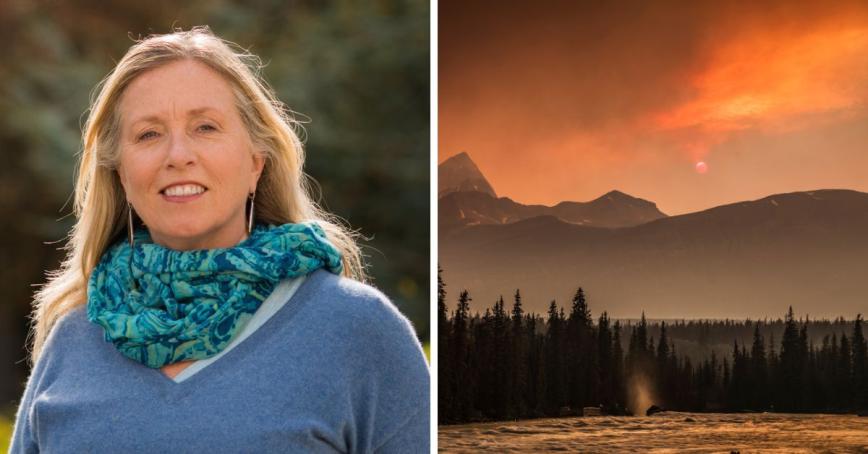21st century wildfires require a new response: Emergency experts
Topics
Featured
Share online

Learn more about the Master of Arts in Disaster and Emergency Management and the Master of Arts in Climate Action Leadership programs.
As BC and Alberta contend with another devastating wildfire season, some experts are advocating for a federal emergency response organization, similar to the US Federal Emergency Management Agency.
The existing system requires provinces and territories to request assistance from the federal government each time a disaster occurs. Advocates say the current system leaves communities vulnerable, as relying on local and provincial emergency response can be insufficient.
In an interview with CBC, Royal Roads University Professor and disaster and emergency management expert Robin Cox says there is a balance to be struck between local, community participation and federal support.
"I think we need to be thinking more about how we bring those two concepts together more effectively in order to address these escalating risks," says Cox. "I think there has been a shift over the last decade to focus more on preparedness. But we've got a long way to go.”
"We need to be investing more attention, more intentionality and more resourcing so that by the time we get to a disaster like the Jasper Park fire, we have practised the kinds of decision-making and outreach that we need to do so that it's much more seamless," she says.
CBC also spoke with John Vaillant, author of the widely acclaimed Fire Weather: The Making of a Beast, about the 2016 fire in Fort McMurray, Alberta. Vaillant, who spoke at the April 2024 Royal Roads Changemakers Speakers Series, shared his concern about the events covered in his book playing out again in Jasper, AB.
“We are in this cycle that’s going to keep repeating itself,” says Vaillant. “We are really exposed right now, and we are being told over and over again that we are not ready for 21st century catastrophic fire.”
“21st century fire has certain hallmarks and that is driven by climate change” he says. “We have higher temperatures, we have lower relative humidity, more evaporation, much dryer forests and that creates a space and an opportunity for fire to not just burn, but to act explosively with astonishing speed.”
“We have to take meaningful action on climate, and we have to alter our firefighting regime and the way we build our communities,” says Vaillant.